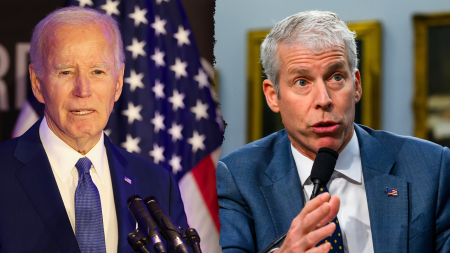Rep. Jamaal Bowman’s “Dear White People” thread on X, posted after the acquittal of Daniel Penny in the death of Jordan Neely, sparked a heated online debate. Bowman, whose congressional term is ending soon, expressed his frustration and weariness with engaging in discussions about race with white people, questioning the efficacy of such dialogues. He acknowledged a lingering hope for progress but also recognized the deeply ingrained nature of white supremacy, suggesting some individuals are “too far gone” to be receptive to change. His post called for allies in the fight against systemic racism, but emphasized the importance of working within his community and with like-minded individuals.
The core of Bowman’s message centered on the trauma of witnessing repeated instances of police brutality and violence against Black individuals. He listed a series of names, including Rodney King, George Floyd, and Jordan Neely, highlighting the pattern of violence and the lack of accountability. Neely’s death, which occurred on a New York City subway and was captured on video, was particularly poignant for Bowman. He described Neely as “sick” and “not a threat,” emphasizing that Penny choked Neely for six minutes, ultimately resulting in his death. The subsequent acquittal of Penny further fueled Bowman’s outrage and despair.
Bowman contrasted his experiences with those of white people, questioning how many times they have witnessed similar acts of violence against white individuals captured on video or reported in the news. He asserted that such occurrences are virtually nonexistent, highlighting the racial disparity in police brutality and the resulting trauma experienced by Black communities. He linked white discomfort with racial discussions to the harm and violence inflicted upon Black people, underscoring the pervasiveness of white supremacy and its influence across geographical and political boundaries. He expressed a deep yearning to be free from the burden of this trauma and praised the resilience and strength of Black people in the face of systemic oppression.
The congressman’s thread ignited a strong reaction, particularly among white users on X, many of whom criticized his approach. Bowman, however, interpreted the negative responses as validation of his point, arguing that the level of outrage triggered by his tweet demonstrated a lack of understanding of the trauma experienced by Black people who consistently face violence and injustice. He juxtaposed their reaction to a tweet with the lived experiences of Black individuals witnessing and experiencing real-world violence and the lack of accountability for perpetrators.
Bowman’s “Dear White People” thread, published in the waning days of his congressional term, can be viewed as a final, impassioned plea for racial justice. While acknowledging his frustration and skepticism about the possibility of meaningful dialogue with some white individuals, he also maintained a flicker of hope for change. The thread, though divisive, served as a stark reminder of the ongoing struggle for racial equality and the deep-seated trauma experienced by Black communities. It underscored the need for continued dialogue and action, however challenging, to address the systemic issues of racism and inequality.
The congressman’s choice to post this thread as his term comes to a close could be interpreted in several ways. Perhaps he felt unburdened by the constraints of political office, allowing him to express his views more candidly. It could also be seen as a final attempt to raise awareness about racial injustice and inspire others to continue the fight. The strong reactions to his post, both positive and negative, demonstrate the complexities of the issue and the difficulty in bridging the racial divide. The thread serves as a powerful testament to the enduring legacy of racial injustice and the ongoing need for meaningful change.










